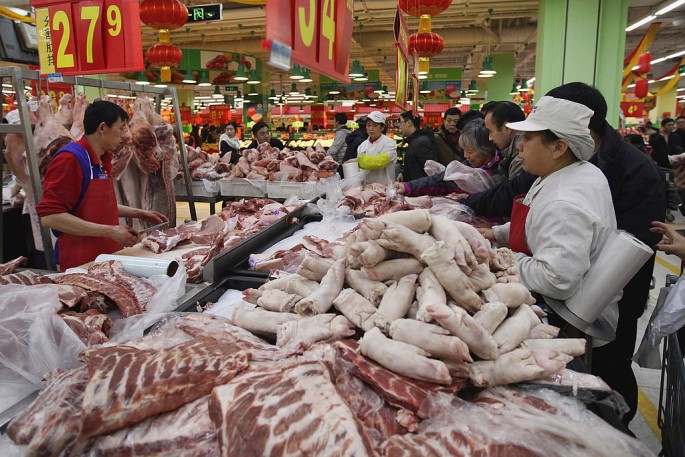China is receiving so much love from environmentalists after the country’s health ministry revealed its plans to cut back its citizens’ meat consumption by half.
The Guardian UK featured the new dietary guidelines, which recommend that the Chinese population of 1.3 billion people only eat 40 grams to 75 grams of meat to improve their health.
But aside from being good for the health, less meat consumption is also seen to reduce greenhouse gas emissions, per the South China Morning Post.
Less Meat: Good for the Environment
According to the Guardian, many celebrities were impressed with the Communist Party of China's (CPC) move on cutting back on meat in people's diets, especially after the effect of such act was linked to lessening global warming.
Among their most vocal supporters are veteran actor Arnold Schwarzenegger and renowned director James Cameron, who participated in an infomercial titled "Less Meat, Less Heat."
Aside from its obvious health benefits, the reduction of meat consumption also helps lessen greenhouse gas emissions by 14.5 percent.
"Through this kind of lifestyle change, it is expected that the livestock industry will transform and carbon emissions will be reduced," director Li Junfeng of the Chinese National Center on Climate Change Strategy and International Cooperation explained to The Guardian.
According to Li, the effects of climate change can only be deterred by a joint effort from everyone, from every sector of society.
"Tackling climate change involves scientific judgment, political decisions, entrepreneurial support, but at last, it still relies on involvement of the general public to change the consumption behavior in China," he said. "Every single one of us has to believe in the low-carbon concept and slowly adapt to it."
China's Meat Consumption
Currently, China is consuming a huge bulk of the entire world's meat supply, with an average annual consumption of 63 kilograms per person.
This is expected to grow even further with an additional 30 kilograms by 2030 if the trend continues and no move is done to impede it.
While China's average meat consumption is hardly the largest with Australians and Americans leading the race, the massive population of the country means they would require more cattle, hog and poultry.
With the new dietary guidelines in place, China's meat consumption would be greatly reduced; thus, fewer animals are raised to match the population's demand for pork, chicken and beef.
"Agriculture is one of the primary contributors to global greenhouse gas emissions, mostly in the form of methane and nitrous oxide--when forestry and other land use changes are factored in, the agriculture sector may account for as much as a quarter of global greenhouse gas emissions," the SCMP said.



























